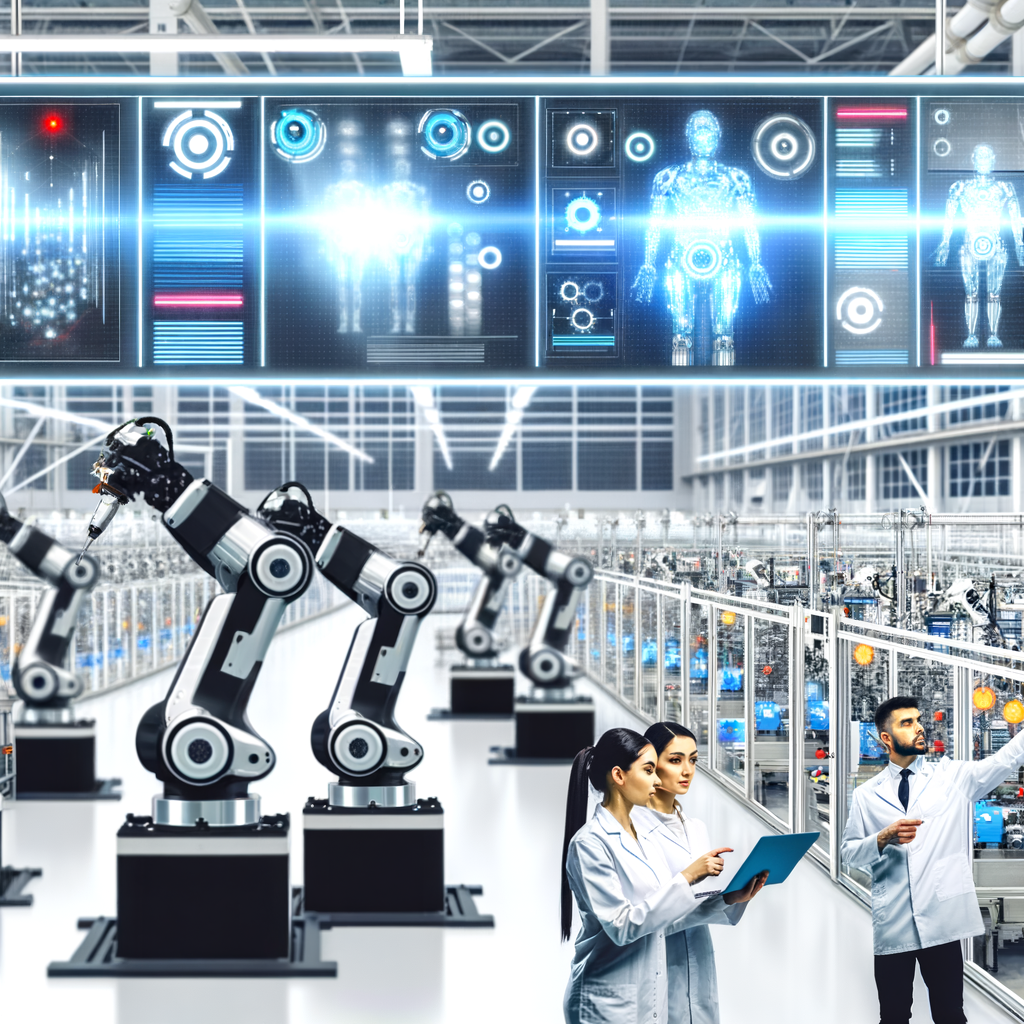Did you know that 91% of industrial companies are investing in AI-powered manufacturing solutions? The factory floor is undergoing a dramatic transformation, and artificial intelligence is at the heart of this revolution. I’ve seen firsthand how AI is reshaping manufacturing – from predictive maintenance that saves millions in downtime to quality control systems that catch defects invisible to the human eye. Let’s dive into the fascinating world of AI in manufacturing!
Understanding AI in Modern Manufacturing
Just as our smartphones have become increasingly intelligent over the years, the manufacturing industry has undergone a similar transformation. AI in manufacturing has evolved from simple automated processes to sophisticated systems that can think, learn, and adapt. Today’s AI-powered factories, much like a well-orchestrated symphony, combine various technologies to create seamless production processes.
Core Components of AI-Driven Manufacturing Systems
Modern AI manufacturing systems are built on several key pillars, similar to how a car needs an engine, wheels, and steering to function. These include machine learning algorithms, sensor networks, and advanced analytics platforms. For instance, a typical automotive assembly line might use computer vision systems to inspect parts while simultaneously employing predictive algorithms to schedule maintenance.
Key Benefits and ROI Potential
The financial impact of AI in manufacturing is substantial – imagine cutting operational costs while simultaneously boosting production quality. Companies like Siemens have reported up to 20% reduction in downtime after implementing AI systems. Moreover, manufacturers often see returns within the first year of implementation through reduced waste and improved efficiency.
Current Market Adoption Rates and Trends
Manufacturers are increasingly embracing AI technologies, much like how businesses adopted computers in the 1980s. Recent surveys suggest that over 50% of manufacturers have implemented some form of AI, with adoption rates growing exponentially each year.
Key Applications of AI in Manufacturing
Predictive Maintenance and Equipment Monitoring
Just as your car’s computer system warns you before a breakdown, AI-powered predictive maintenance systems can forecast equipment failures before they occur. For example, a paper mill in Sweden used AI sensors to reduce unplanned downtime by 50% by detecting subtle changes in machinery performance.
Quality Control and Defect Detection
AI-powered quality control systems work like tireless inspectors with superhuman accuracy. They can spot defects that would be invisible to the human eye, much like how medical AI can detect early-stage diseases in X-rays. A semiconductor manufacturer recently implemented an AI inspection system that improved defect detection rates by 90%.
Supply Chain Optimization and Inventory Management
Modern AI systems manage supply chains like expert chess players, thinking several moves ahead. They can predict demand patterns, optimize inventory levels, and suggest the best shipping routes, similar to how navigation apps find the fastest route through traffic.
Production Planning and Scheduling Optimization
AI scheduling systems work like master conductors, orchestrating countless moving parts into a harmonious production process. They can adjust production schedules in real-time, responding to changes in demand or resource availability.
Implementation Strategies and Challenges
Assessment of Manufacturing AI Readiness
Before implementing AI, manufacturers must evaluate their readiness, much like a pilot’s pre-flight checklist. This includes assessing current technology infrastructure, data quality, and workforce capabilities.
Infrastructure Requirements and Considerations
Proper infrastructure is crucial for AI implementation, much like how a house needs a solid foundation. This includes robust data collection systems, adequate computing power, and reliable network connectivity.
Common Implementation Challenges and Solutions
Many manufacturers face similar hurdles when implementing AI, such as data quality issues or resistance to change. However, like any major technological shift, these challenges can be overcome with proper planning and management.
Future of AI in Manufacturing
Emerging Technologies and Innovations
The future of manufacturing AI looks promising, with innovations like quantum computing and advanced robotics on the horizon. These technologies could revolutionize manufacturing much like how the internet transformed communication.
Expected Industry Developments
Industry experts predict even greater integration of AI across manufacturing processes. We’re likely to see more autonomous factories, similar to how self-driving cars are becoming more common on our roads.
Impact on Workforce and Required Skills
As AI transforms manufacturing, the workforce must evolve too. Just as the digital revolution created new job categories, AI is creating roles that combine traditional manufacturing knowledge with technical expertise.
Potential Challenges and Opportunities Ahead
While challenges like data security and ethical AI use remain, the opportunities are enormous. From sustainable manufacturing to personalized production, AI is opening new possibilities that were once considered science fiction.
Conclusion
The integration of AI in manufacturing represents a pivotal shift in how we approach production, quality control, and operational efficiency. As we’ve explored, the benefits are substantial – from reduced downtime to enhanced product quality. Ready to transform your manufacturing operations? Start by assessing your AI readiness and identifying key areas where smart factory solutions can deliver the most value.

